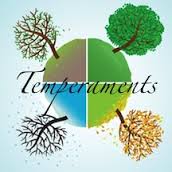Identifying your child’s personality type might help you with some sense of general steps on how to deal with your child’s unique traits. There are no cookie cutters formulas but there are some general trends and traits that you can determine. Nearly twenty-five hundred years ago Hippocrates laid the foundation for understanding personality with four types and their commonly recognised characteristics.
They are:
- Cholerics are adventurous, determined, outspoken, competitive, strong-willed. Choleric people are extroverted and proud. They tend to be leaders and seek to be in control of situations, to be on top and to be the best. They tend to be defiant of authority and try to assert themselves. They tend to speak their minds without thinking much about who they affect with their words. They tend to tend towards leadership roles, such as managers, politicians, captains, team leaders, and so on.
- Sanguines are playful, sociable, talkative, lively, imaginative. Sanguine people are boisterous, bubbly, chatty, openly emotional, social extroverts.They make friends quickly and are also generally easy going, charismatic and easy to get along with. They tend to be your entertainers, singers and dancers.
- Melancholy people are detailed, orderly, persistent, respectful, deep. Melancholy people are perfectionists and are idealists who wish for things to be a certain way. They think and plan before they act; they are not the types who will resort to rash, impulsive behaviour. They tend to be your scientists, analysts, programmers, logicians, and so on.
- Phlegmatics are thoughtful, controlled, adaptable, attentive, diplomatic. Phlegmatic people are usually eager to please, and quick to give in to others rather than asserting their own desires. They are well-behaved and avoid conflict, they seek peace. They are extremely trustworthy; if they make a promise, it’s very likely that they will keep it, they are natural followers and follow rules happily. They tend to be the ones that make things work and are the stable, trustworthy colleagues at work.
Generally if your child is a sanquine, then he or she is primarily interested in being with other people and having fun. If your child is a melancholy he or she probably most likely wants to get things just right. If your child is a phlegmatic he or she cares deeply about others’ feelings. If your child is a choleric he or she values adventure and being the leader.
These are not absolute and people tend to have more than one character trait.
culled from temperaments.fighunter.com; focusonthefamily.com photo source: earthschooling.info




